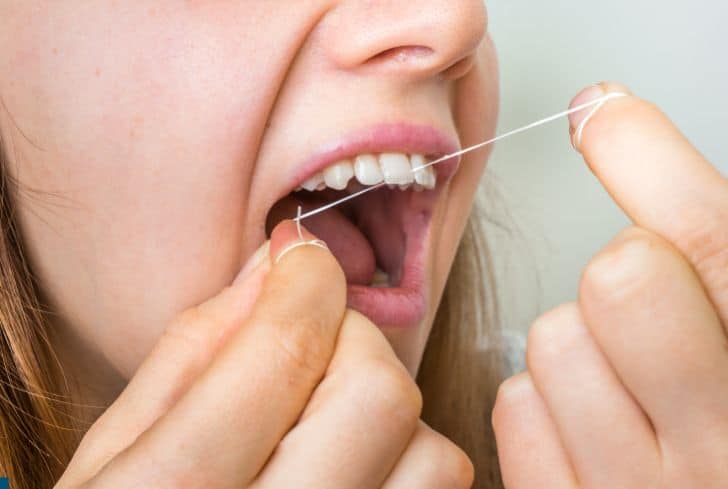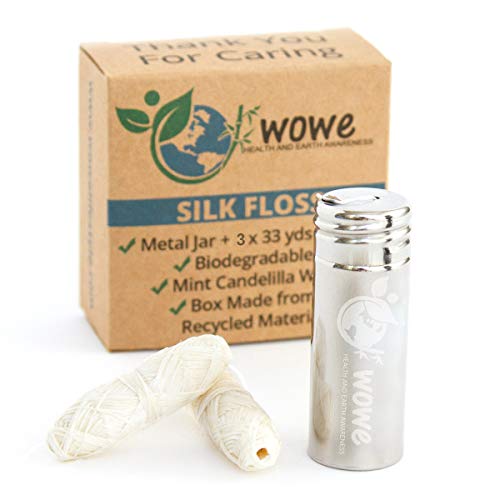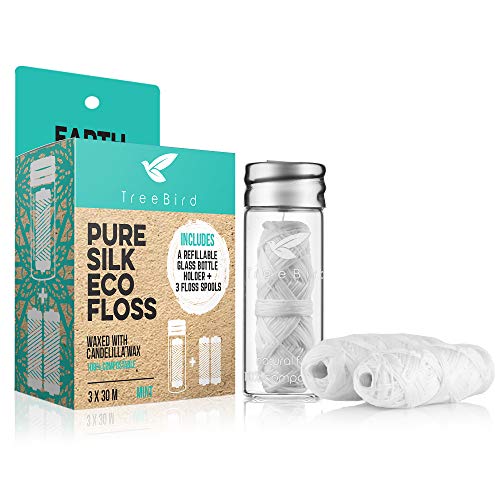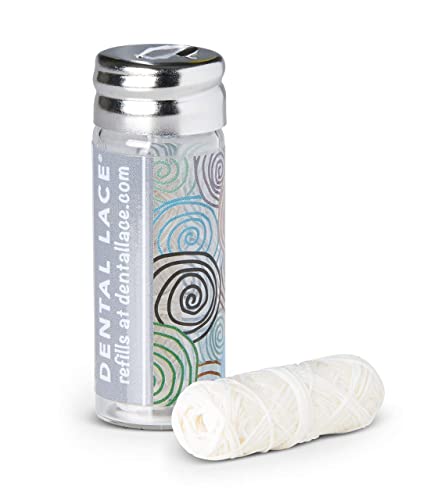Oral hygiene is one of the most important aspects of caring for yourself. If you skip it, you will be uncomfortable, and everyone will know. Flossing should be a part of the routine because it helps you get rid of plaque, gum disease, cavities, and bad breath or halitosis.
But enough on the benefits; you must already know them, given that you have looked up this article. You must also be curious about your oral hygiene routine’s impact on the ecosystem. If you care about the environment, you are in the right place.
Millions of Americans consume floss daily, so what happens to floss when we throw it out? Of course, we cannot recycle it because it is a hygiene waste product, so we must find alternative disposal methods. And is dental floss biodegradable? What impacts do they have on biodiversity? Read on to get the answers you need!
Does Floss Decompose?
No, conventional dental floss does not decompose because it is made of nylon, providing the strength and rigidity that helps the thread go through your teeth without hurting the gum. Furthermore, some chemicals are added to the string to allow fluid passage, and these substances can be harmful to nature while decomposing.
It is no longer reserved information that if you don’t floss the spaces between your teeth, plaque builds up there. Plaque is bacteria that begins in a gel-like state and then hardens over time, causing gingivitis or swollen gums.
Dental floss also helps repair damage to the gums caused by dental problems like gingivitis and periodontitis. Floss can also contain additional properties like anti-tartar control, anticaries, antibacterial, and anti-plaque.
The benefits are no doubt numerous, which leads us to consider the effects on the environment. Does floss decompose?
We would say no, because of the materials that contribute to its composition. Let’s explore them.
First off, floss is made from petroleum. It is a nylon material which makes it ideal and safe for our teeth and gums. Then, a chemical substance or micro-crystalline wax is used to coat the surface for that easy glide that we all love.
Moreover, this item is not suitable for the environment because it contains chemicals that can disturb biodiversity around the area where it’s rotting.
If you use traditional floss, this is what to expect. But newer options are emerging to support the movement to go green.
Those are biodegradable and will certainly decompose in the right environment. they also won’t harm the ecosystem, which will happen fast. This is because this type of floss is made from biodegradable materials like bamboo.
Is Floss Compostable?
No, floss is not compostable. There are many types of floss, but only the newer products are biodegradable, which means you can compost them. But on the other hand, the more popular products are not biodegradable, which means they will not break down in a compost pile.
The rule of thumb is that a material is compostable if it can break down fast when microbes act on it. Organic matter is compostable because it is biodegradable.
In other words, microbes, heat, moisture, and oxygen can break it down. The conventional floss, not so much. Traditional floss is essentially nylon made from petroleum and is more resistant to bacteria and yeast that break down organic waste.
Furthermore, there is no nutritional benefit to be found in nylon, so there is no need to add it to your compost pile.
But again, there are impressive efforts to reduce our carbon emissions and other activities that have environmental impacts. For instance, if you look up eco-friendly dental hygiene tools, you will find biodegradable floss!
Biodegradable floss is made from natural and organic materials like bamboo fibers, so you can compost those waste products. They will break down fast when microbes act on them and improve the quality of your compost mix.
In a nutshell, floss can be compostable, but only when it is organic or green. We cannot recycle floss and use a considerable amount of it. Our best bet is to choose sustainable options like biodegradable floss.
Is Oral-B Dental Floss Biodegradable?
No, Oral-B dental floss is not biodegradable. It is made from polytetrafluoroethylene or the material known as Teflon. And Teflon is not biodegradable. Teflon coating is waterproof and wax-like, making it super easy for the string to glide between your teeth, trap bacteria, and keep the spaces around the gum clean.
Oral-B dental products are a good household brand. It provides different flavors and products that keep your oral hygiene up to par, but is it at the cost of the environment?
Oral-B dental floss is not biodegradable because it is made from Teflon. Teflon is a synthetic fluoropolymer that does not decompose.
It is hydrophobic so that water does not pass through it. It is also unreactive so that food molecules won’t get trapped in it but will instead stick to it.
This is a great innovation considering that the alternative would be about thirty strings joined together. This floss is not strong; it breaks easily and may leave strands of fiber in your teeth, an uncomfortable feeling.
Oral-B dental floss is undoubtedly an improvement over this option, but at what cost? Teflon does not biodegrade, and we cannot recycle floss because it is a dental waste product, so we have to throw it into the trash can.
You know what happens afterward – the landfills get slowly filled up. You may say it’s just floss, but one in four Americans floss daily. The American Dentistry Association recommends flossing at least once daily, so the strings add up before you know it.
Is Hello Floss Biodegradable?
Yes, Hello floss is a biodegradable choice for dental hygiene enthusiasts. It is best to floss once daily at least, and you would be accumulating lots of string at the end of the day. So, the green movement is thankful for a more sustainable option like Hello Floss’ bamboo floss.
Made from bamboo fibers, you have the assurance that the required microorganisms will break it down hassle-free.
You would be surprised at how fast the little things accumulate. Adopting a more sustainable method of living requires examining different areas of your life.
What are your consumption habits? What are the items that you use often? If floss is one of them, you may want to consider investing in biodegradable floss instead of materials like Teflon.
This is for the sake of the environment. Hello floss is made from bamboo, a species of a flowering plant.
Bamboo is among the fastest-growing plants on earth. Therefore, it is a sustainable option for a population that will soon focus on oral hygiene.
In addition to the points in favor of Hello Floss, bamboo is a biodegradable material. This means it breaks down pretty fast.
Depending on the product, it can take a few weeks to several years, but it is unlikely that a string of floss made from bamboo fibers will require up to a decade for biodegradation.
The biodegradation rate depends on the material’s size, heat, moisture, and environmental factors. However, in a compost pile, bamboo floss will decompose very fast.
The same happens in a landfill, although the process may be slower because of increased exposure. But immediately bacteria and yeast set their sights on it; they will begin the decomposition process.
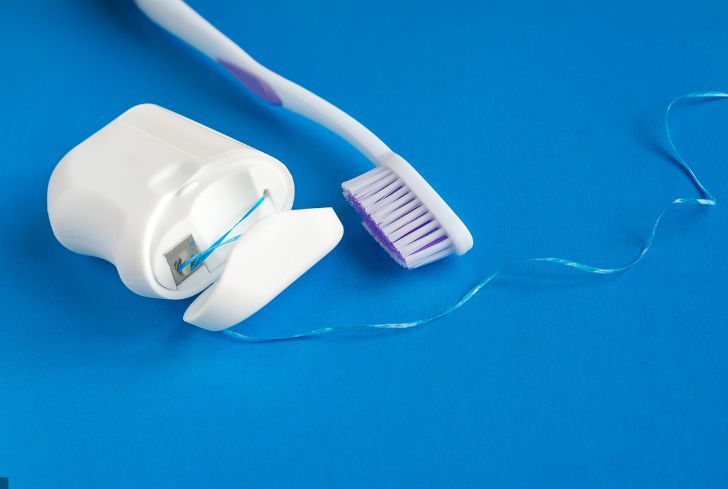
How Long Does it Take for Floss to Biodegrade?
If it is made from Teflon, floss can take forever to biodegrade. Teflon is classified under the family of forever chemicals, and this is because of its resistance to biodegradation factors. The forever chemicals don’t break down fast, which is a plus when your product is still in good shape.
But when disposal comes up, expect that item to sit on the landfill for long years, provided you don’t recycle it.
Floss made from Teflon, the most popular option in the market, rarely biodegrades. It is often coated with micro-crystalline wax, a petroleum by-product. In this form, it is highly resistant to decomposition factors, so it will take forever to break down.
On the other hand, floss made from a material like bamboo, which is starting to grow more popular because of the sustainability movement, will biodegrade fast. When you opt for eco-friendly brands, they come with the assurance that the waste floss can be discarded into a compost pile or the trash can, and nothing negative impacts the environment from that action.
Floss is a hygiene waste product that you cannot recycle. The material is far too minuscule for recycling, so the landfill is the most likely place it will end up.
If it is biodegradable, that is not bad, but if it is non-biodegradable, it will remain in a landfill for several decades. It will leave microplastics all over the place when it finally breaks down.
How do You Dispose of Dental Floss?
The only way to dispose of dental floss is to throw it in the trash can. If it is made from silk or bamboo, sustainable materials, that’s great! It means the strings will dissolve into humus in no time. However, if it is made from plastic or nylon, it will remain in a landfill for a very long time.
Environmental factors determine the biodegradation duration. But again, biodegradable brands will break down fast, providing more disposal options.
Five Best Biodegradable Dental Flosses
Check out the best biodegradable dental flosses if you want to go green:
1. Wowe Natural Silk Floss
Wowe Natural Silk Floss is made from silk and candelilla wax, natural and renewable products. They come in glass and stainless steel packaging, which ensures complete sustainability.
Yours can be mint flavored too. You get a pack, a container, and three refills that anyone can work around.
2. TreeBird Silk Floss
This is another option that is made from silk and natural candelilla wax with mint. It comes with a recyclable glass container, making it an all-round sustainable dental hygiene tool.
3. Hydrophil Bamboo Dental Floss
If you don’t want a long string, you can opt for this product that comes with a bamboo casing. The thread is also biodegradable, as it is made from silk. It will easily glide between your teeth and clean them appropriately.
4. Dental Lace
Dental Lace is a vegan-friendly floss made from plant-based polylactic acid with a candelilla wax coating. This is natural and compostable silk to make disposal environmentally friendly and straightforward.
5. Lucky Teeth
Lucky Teeth is an eco-friendly brand that makes charcoal-activated dental floss from biodegradable materials. Give this one a try, and you will barely know the difference between it and a Teflon product.
Conclusion
You can floss without improving your negative impacts on the environment. Seek environmentally-friendly options as we have discussed in this blog post.
